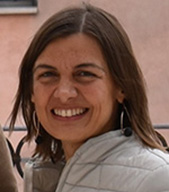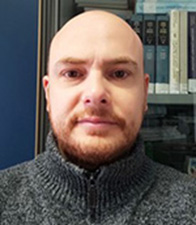SPECIAL SESSION 1
NANOSCIENCE AND NANOTECHNOLOGY APPLIED TO CULTURAL HERITAGE (SS1)
The special session on “Nanoscience and nanotechnologies applied to cultural heritage” aims to bring together the scientific community working on the design and development of innovative materials for the long-term and reliable conservation of cultural heritage. The session will cover different approaches, from preventive to remedial conservation. State-of-the-art research activities on the development of materials for the cleaning, protection, consolidation and restoration of cultural objects, monuments and buildings, will be discussed. In agreement with the EU GREEN DEAL, attention will be focused on new sustainable materials and technologies that meet the requirements for cultural heritage applications and that are safe for both end-users and the environment. Progresses on advanced and multifunctional materials will be discussed, including the stimuli-responsive, self-healing and reversible-by-design systems. Contributions on materials and technologies for the early detection and monitoring of degrading agents, for the packaging, transport and exhibition of cultural objects are also welcome. In addition, the session will also deal with innovative diagnostic methods at nano- and microscale levels and archaeometric studies for the knowledge of cultural heritage, to identify its composition, state of conservation, production technologies, provenance, and to investigate degradation processes.
TOPICS
- Innovative and sustainable materials and technologies for the conservation of cultural heritage
- Sustainability and circular economy applied to cultural heritage preservation
- “Green” materials for the cleaning of works of art
- Protective and multifunctional materials for works of art (metals, stone, ceramics, glasses, canvas, etc.)
- Innovative consolidants for works of art, monuments and buildings
- Innovative materials and technologies for preventive conservation (absorbers, packaging materials, sensors for the detection of degrading agents)
- Nano and micro-scale diagnostics and multianalytical approaches applied to cultural heritage
- Archaeometric studies for the knowledge of cultural heritage, to identify its composition, production technologies and provenance
ORGANISER(S):
PUBLICATION:
Info will be available soon!
INVITED SPEAKER(S):
Info will be available soon!



